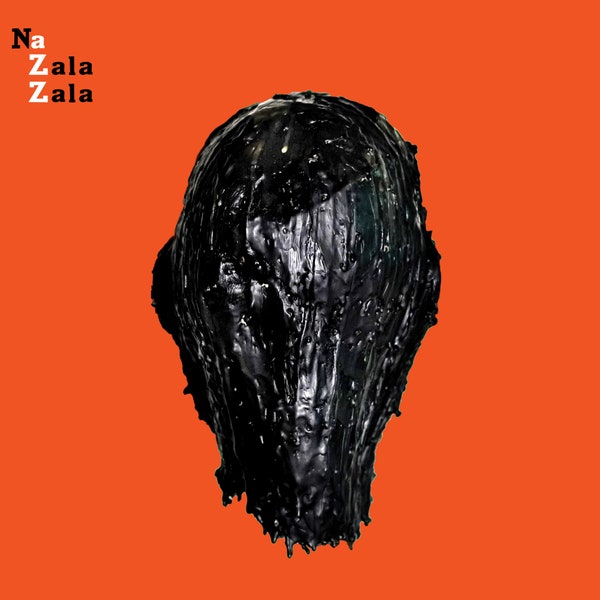Image: Nyege Nyege
The music East Africa refers to as ‘techno’ stands in stark contrast to what we understand as techno in the Western canon, taking the form of mind bending abstract sound collages and works of noise art. Like it’s Western counterpart, East Africa’s techno is very much a mode of futurism, albeit endemic to the experience of life in the region. Whereas the techno of the West feels grounded in utopian ideations, Africa’s ‘outsider’ techno looks towards the dystopian. The modality is directly informed by East Africa’s history of civil war and military presence, which left in its wake a future defined by uncertainty and devastation. Much in the same way the techno of post-war Germany tethered towards pounding austerity and brutalism, the techno of the Congo, Uganda and its surrounds has a penchant for aggression. Crunched out distortion, ominous vocal samples and savage clangs of hardcore industrial come together to formulate a riotous noise entirely indigenous to the region.
At the forefront of pioneering a space for this particular diaspora of electronic music has been Nyege Nyege. Over the past seven years, the Kampala collective have established a lauded festival and network of labels which have brought international recognition to the ‘outsider’ music they champion. Na Zala Zala, the debut album from Congolese beatmaker Rey Sapienz on Nyege Nyege Tapes, is informed by the experience of violence and displacement. This forges a record that is emblematic of East Africa’s techno identity, but also one that finds itself contemplating the human body in relation to chaos. It arrives at an ideation of a brutal man-machine hybrid, a future monster born from equal parts strength and strife.
Working together with rapper Fresh Dougis and traditional vocalist Papalas Palata to form The Congo Techno Ensemble, Sapienz pulls from industrial doom, Congolese dancehall, hip hop and experimental forms of noise for Na Zala Zala. This is an album which, across its nine tracks, literally seethes and smoulders with a disconcerting edge. There is a constant simmering tension that writhes beneath Na Zala Zala’s distorted beats and warping, beastly vocals at all times. This tension never ceases, refusing any sort of reprieve from Na Zala Zala’s pulsating savagery. Dancehall Pigme opens the record with a slow, disjointed breakbeat accented with ominous psytrance synth warbles and mechanised vocalisations. From there Na Zala Zala leaps for the jugular, formulating iterations of Congolese hip-hop beats from a litany of obscure vocal samples, industrial techno kicks and snarling bass lines.
While Na Zala Zala finds its place in the wildly experimental landscape of East African electronica, Sapienz’s electro Congolese dancehall feels slightly more approachable than the doomcore dioramas of Don Zila and Slikback. This is not to say that Na Zala Zala is not challenging. At times, it feels completely unhinged and diabolical. But it is Sapienz’s undeniable affinity for the sonic potential of the human voice that ultimately sustains Na Zala Zala’s musical ambitions and sets Sapienz apart from his peers. His nuanced manipulation of the human voice across the record is incredibly dextrous and multifaceted, more jagged and harrowing than any of the sounds programmed to synthesise the instrumentals. On Esala Rien, the voice takes the form of monstrous snarls, guttural and animal-like against sparse industrial atmospherics. His vocal contortions are truly unsettling, at times roaring and at others fitful and erratic. On Zuwa Ba Risk, the Ensemble’s voices are filtered and manipulated to bubble and ooze out of the oscillating synths behind them, becoming a sort of mechanised yowl that conjures images of cyborg tribesmen and warrior robots.
The voice as vehicle for aesthetic expression is paramount to what Sapienz and The Congo Techno Ensemble do on Na Zala Zala. He freely weaves cultural motifs and references throughout, recalling Africa’s oral traditions by way of Dougis’s rapid-fire Lingala flows and Palata’s Swahili chanting. This focuses the history of the voice as the foremost tool in the repertoire of African performance tradition, and on Na Zala Zala embraces this history and brazenly remixes it for Sapienz’s present moment. This provides us with disturbingly stylised moments such as the fierce monologue of Santonge, collaged from layers of manipulated screams, wails and roars from guest vocalists Lemeulleur and Sekelembele. This track in particular is one of Na Zala Zala’s most successful and exhilarating moments. The chorus of machine voices and Sapienz’s own growling against the pounding of hard techno goes at hyper-speed, pulling you into the nightmare of Na Zala Zala’s techno theatre macabre.
What Sapienz and his Ensemble create with Na Zala Zala is a maniacal beast of nihilistic afro-futurist concerns, which makes it a formidable yet essential experience. As his debut, Na Zala Zala is a defiant and unsettling war cry that announces the arrival of Sapienz as one of East Africa’s most fierce and unapologetic visionaries.
Download Na Zala Zala here, and see the music video for EZA MAKAMBO below.
Follow Rey Sapienz
Facebook | Instagram | SoundCloud




